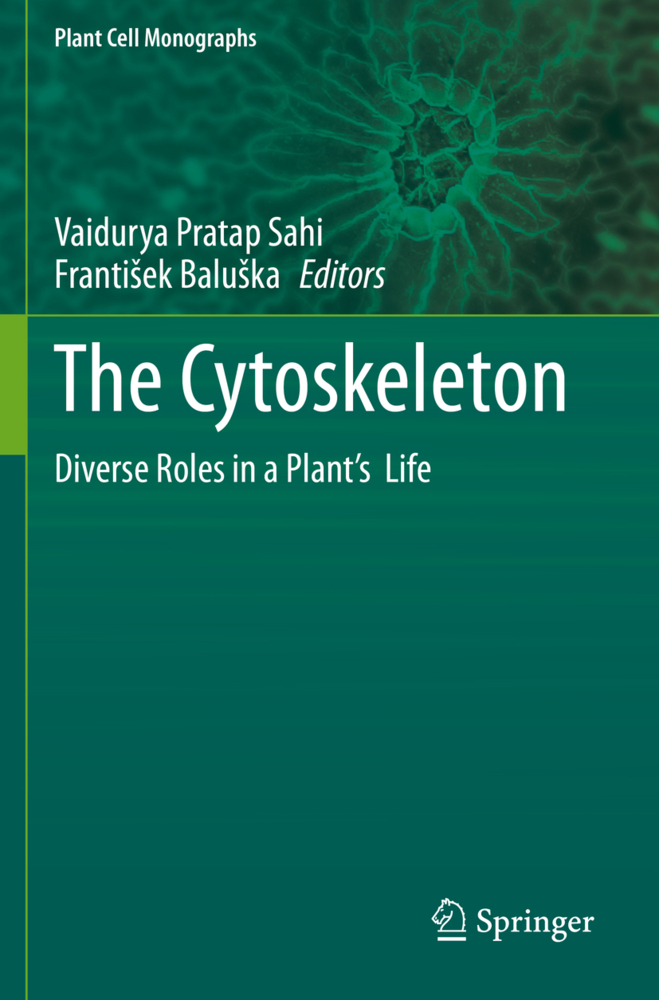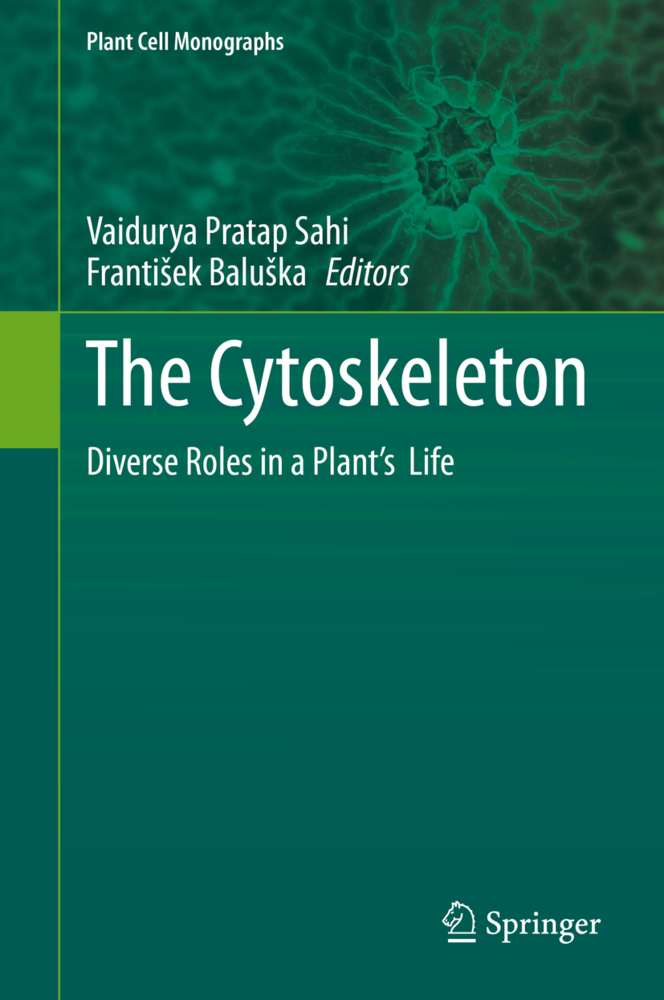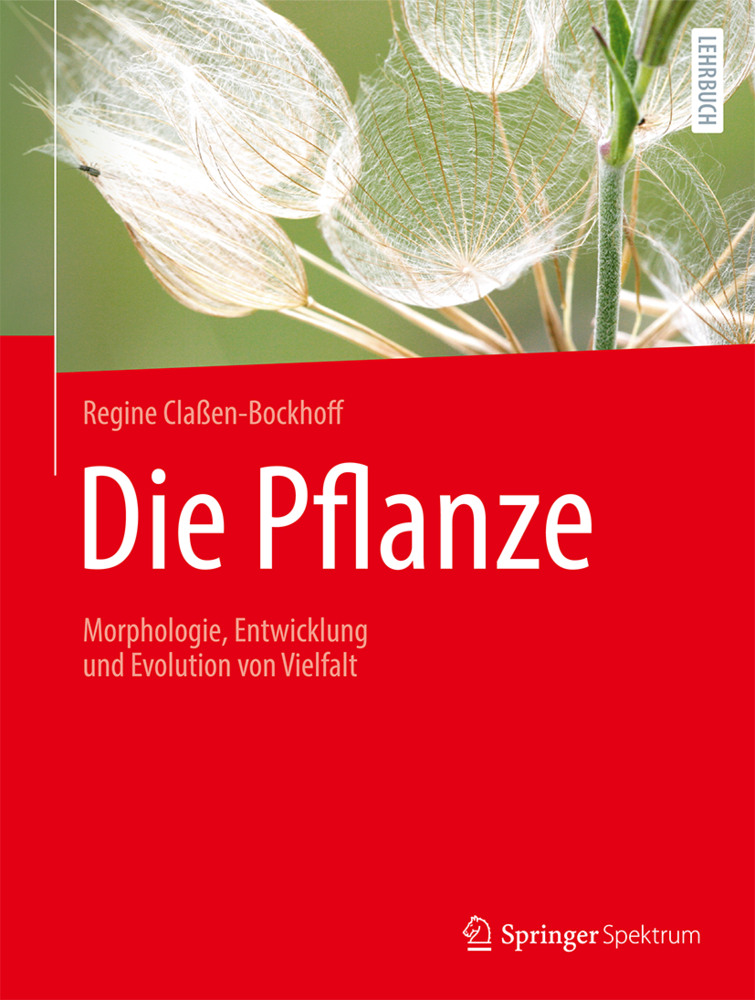The Cytoskeleton
The Cytoskeleton
This book focuses on the plant cytoskeleton and its various cross-talks with other cellular components leading to its role in plant growth and development. It not only allows the geometric and signaling dimensions of cells, but is also very important in physiological processes. The book discusses the recent studies showing the role of actin and microtubule cytoskeleton interactions in cell-wall assembly and dynamics. The authors examine the role of both microtubules in the mechanics of plant cells, and actin filaments in the motility of chloroplasts. Based on recent advances in the study of the acto-myosin complex using high-resolution microscopy, they propose a new model for intracellular transport in plants. Exploring an almost-forgotten field of bioelectricity in the context of the cytoskeleton, the book highlights connections between the dynamic actin filaments and the bioelectricity of membranes and demonstrates that the plant cytoskeleton is involved in the distribution of plant hormones. Lastly, it addresses the role of endomembrane -cytoskeleton interactions to show the importance of the cytoskeleton in organelle morphogenesis and cellular functions. Studies in various plant models have shown how the actin filament and microtubules control and coordinate plant cell growth and development. This book summarizes the mechanisms underlying these functions.
Vaidurya Pratap Sahi is a researcher at the Molecular Cell Biology Laboratory, Botanical Institute, Karlsruhe Institute of Technology, Germany. He completed his BSc in Agricultural Sciences at Sam Higginbotton University of Agriculture, Technology and Sciences, India, followed by an MSc in Plant Breeding and Genetics at Tamil Nadu Agricultural University, India. Supported by a Monbukagakusho fellowship (MEXT), he completed his PhD in Molecular Biology at Ehime University, Japan in 2012. Presently he is working in the field of plant cell biology to understand the role of actin and microtubules in the development of rice plants. His interests include Plant Signaling, Plant Intelligence, Utilization of Landraces of Crops and History of Plant Biology. He is a member of the editorial team of the journal Plant Signaling & Behaviour. He also serves as an ambassador for the Society of Experimental Biology, UK.
Frantisek Baluska is a lecturer and researcher at the Institute of Cellular and Molecular Botany at Bonn University, Germany. He obtained the Full Professor title at the Comenius University Bratislava (Slovakia) in 2008. His main interest is plant cell biology, especially root apices, as related to the cytoskeleton, endocytosis, vesicle trafficking and polarity. He has investigated root apices for more than twenty years, and made original contribution to the root apex organization by the discovery of a transition zone interpolated between the apical meristem and the rapid cell elongation region. Frantisek Baluska is also interested in the response of roots to environmental factors such as gravity, as well as in the emerging field of plant neurobiology. Finally, he is interested in the conceptual analysis of the cell theory. He published more than eighty research papers and edited several books. In 2005, he initiated the Plant Neurobiology Society which annualy organizes international symposia on plant neurobiology. Frantisek Baluska founded and acts as Editor-in-Chief for two journals: Plant Signaling & Behavior and Communicative & Integrative Biology.Sahi, Vaidurya Pratap
Baluska, Frantisek
| ISBN | 9783030335281 |
|---|---|
| Artikelnummer | 9783030335281 |
| Medientyp | E-Book - PDF |
| Copyrightjahr | 2019 |
| Verlag | Springer-Verlag |
| Umfang | 153 Seiten |
| Sprache | Englisch |
| Kopierschutz | Digitales Wasserzeichen |









